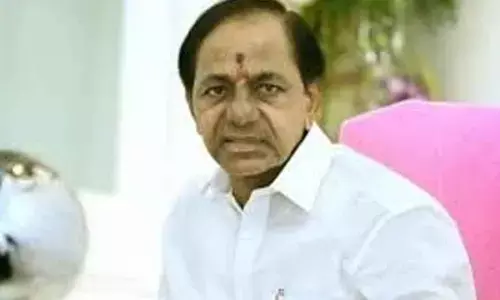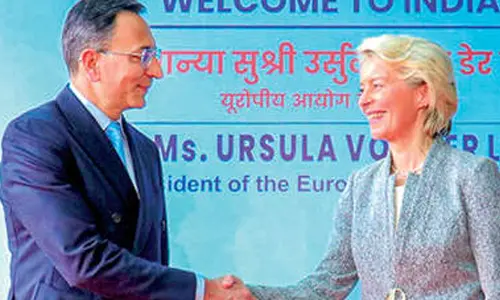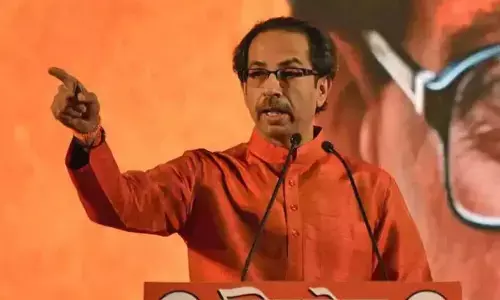No vaping: Cabinet moves to put out e-cigarettes
 No vaping: Cabinet moves to put out e-cigarettes
No vaping: Cabinet moves to put out e-cigarettesThe Union Cabinet is likely to ban the sale of e-cigarettes, popularly known as vapes.
New Delhi: The Union Cabinet is likely to ban the sale of e-cigarettes, popularly known as vapes. Following a proposal from the Union Health Ministry, an ordinance was readied that is all set to get a green signal in the meeting.
However, opinion remains divided about the effectiveness of the move. Is the banning of e-cigarettes absolutely essential for public health or is the government just depriving smokers of alternatives that can help them quit smoking?
What are e-cigarettes?
E-cigarettes do not burn tobacco, but use a heating element to vaporise liquid nicotine, which the user inhales. That is what differentiates it from a combustible cigarette. It is not licensed in India.
Why the red flags?
The ease of access, which are available online and marketed freely as products to help smokers quit smoking, is the reason the government has raised several issues with e-cigarettes.
The Union Health Ministry had earlier issued an advisory to all states and Union Territories to ensure that Electronic Nicotine Delivery Systems (ENDS), e-cigarettes, heat-not-burn devices, vape, e-sheesha, e-nicotine flavoured hookah, and devices that enable nicotine delivery are not sold (including online sale), manufactured, distributed, traded, imported and advertised in their jurisdictions.
What research said about e-cigarettes
The American Medical Association also called upon doctors to inform patients about the dangers of e-cigarettes on the advice of the United States Centre for Disease Control and Prevention. JUUL has in fact been at the receiving end of health experts and regulatory bodies for promoting the use of e-cigarettes among the youth.
No other options?
In India, an advisory was issued by the Union Health Ministry to restrict the advertisements of e-cigarettes. This was, however, contested in the Delhi High Court which ruled that e-cigarettes are not drugs and that its sale could not be regulated.
The government was then forced to take the ordinance route but after much deliberation. A panel was set up under Finance Minister Nirmala Sitharam to study the effect of e-cigarettes whose recommendations were then adopted by the Indian Council of Medical Research (ICMR).
What ICMR is saying
The ICMR (Indian Council of Medical Research) has red-flagged the use of e-cigarettes citing studies that have shown that these have the potential to cause nicotine addiction. The ICMR's white paper also relies on studies done and action taken by bodies like the food and drug administration (FDA) in the US which has curbed the sale of e-cigarette over concerns that it leads to an increase in smoking among teens.
The ICMR noted in its white paper that e-cigarettes and other such devices contained not only nicotine solution, which was highly addictive but also harmful ingredients such as flavoring agents and vaporisers. Use of ENDS or e-cigarettes has documented adverse effects on humans, which include DNA damage, carcinogenic, cellular, molecular and immunological toxicity, respiratory, cardiovascular and neurological disorders, and adverse impact on fetal development and pregnancy.
What e-cigarette advocates say
There are those who see e-cigarettes as a harm reducing product and have argued that a ban will never work. "It will lead to counterfeiting and smuggling. The government only wants to upstage the courts and that is why we are seeing a ban," said Amir Ullah Khan, an economist and a former advisor to the Bill and Melinda Gates Foundation.
In fact, the former president of the International Harm Reduction Association Dr Alex Wodak believes that the India government's approach to vaping will harm the health of millions of Indians and only increase dependency.
Voices of discontent
The government is under a great deal of pressure from the tobacco industry. In fact, the Confederation of All India Traders or CAIT in its memorandum to Union Health Minister Harshvardhan said that over the past decades, despite several government interventions smoking still remains prevalent.
Hence, it suggested, a more viable solution would be to substitute the use of combustible cigarettes with alternatives like e- cigarettes. It further said that tobacco harm reduction has emerged as a viable solution to reduce this disease burden by substituting the use of combustible cigarettes with alternatives like e-cigarettes.
















